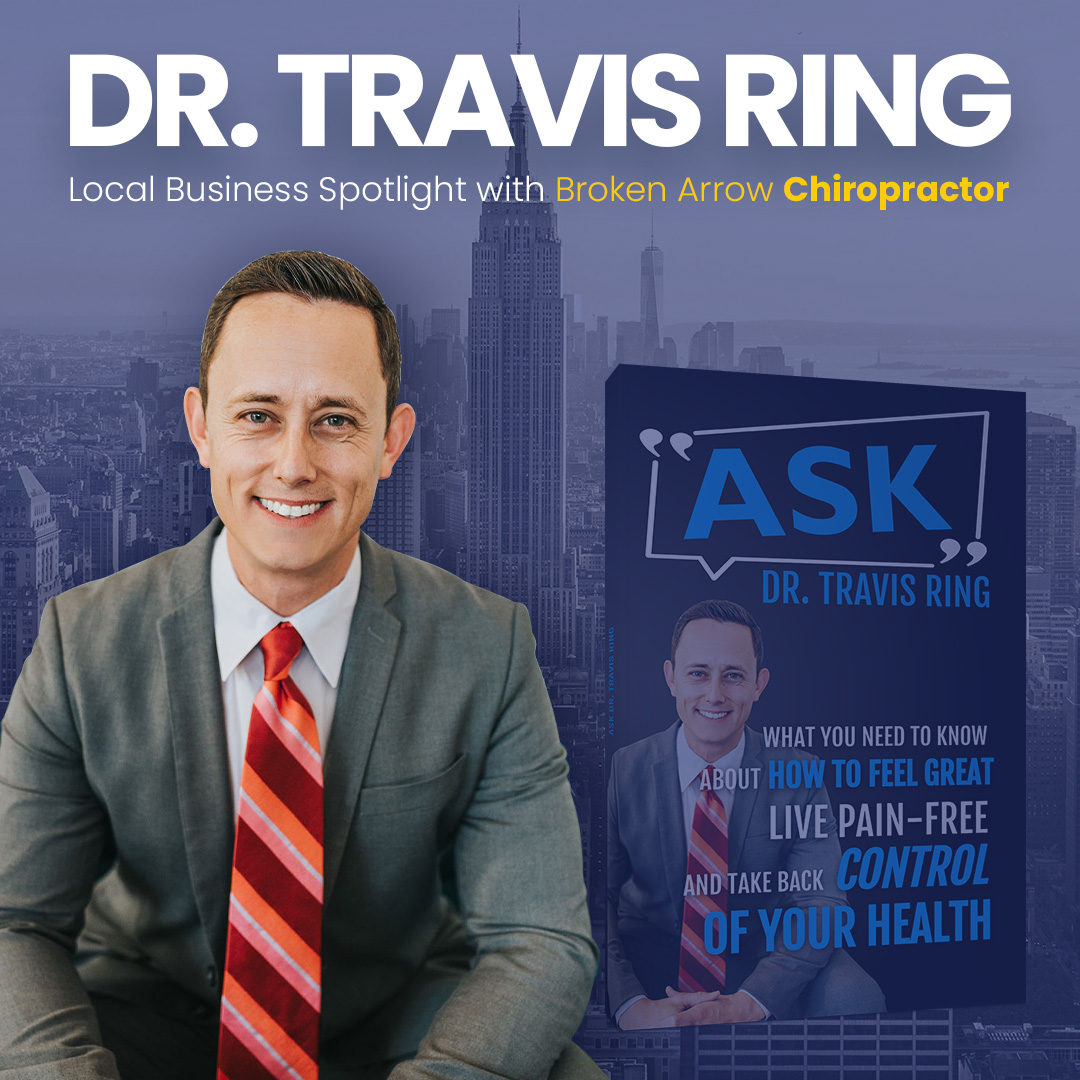Feeling well and enjoying good health is essential to living your best life. Your life is put on hold if you suffer from back or neck pain, headaches, or other maladies. Through his successful family-centred chiropractic practice and his own health journey, Broken Arrow chiropractor Dr. Travis Ring is uniquely qualified to help people find and conquer the sources of your pain. Rich with inspiring examples about the healing effects of chiropractic care, this podcast episode is a guide to set you on the path back to a full life. This engaging conversation with Dr. Ring reveals:
- The biggest myths and misconceptions about chiropractic care
- How to break the cycle of bad habits that lead to pain
- How a chiropractic approach improves overall health and saves health-care expenses
- The unique ways chiropractic care helps children
- The most important questions families should ask when evaluating a chiropractor
…plus much more! To begin your healing journey, listen to this episode with Dr. Travis Ring today.










